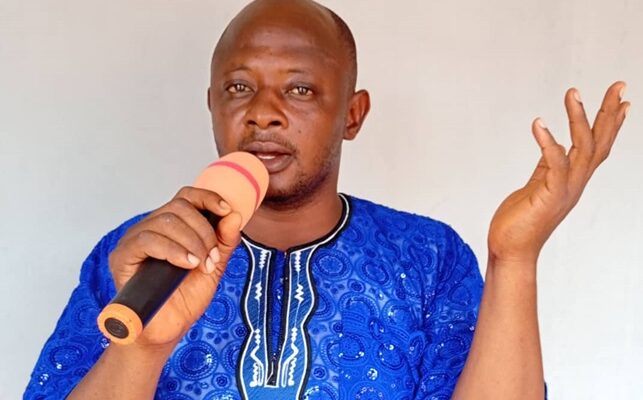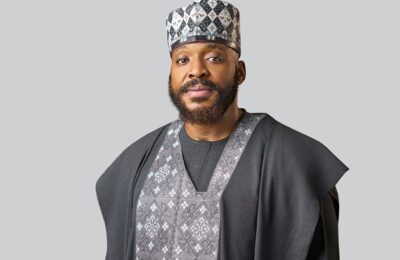The most dangerous censorship in the church today is not enforced by governments, militant atheists, or hostile ideologies—it is manufactured inside the house of faith. A famine has struck the body of Christ in Nigeria and beyond, not because the harvest is gone, but because the harvesters have begun breaking each other’s tools. And in a tragic turn, the loudest opposition to the gospel often comes, not from outside religions, but from those wearing the Christian name tag.
It is an open secret in Nigeria: many believers cannot stomach seeing another congregation flourish. Instead of rejoicing that Christ is preached, they bristle with envy, hatred, jelousy and suspicion. They will defend other religions’ “right” to be free from hearing the gospel, declaring that evangelism is “frustrating” or “humiliating” to non-Christians. Yet, within their own secret lives, they traffic in the very sins they condemn in others—unholy talk, malicious gossip, womanising, patronising prostitutes, and quietly funding or committing abortions. It is like the Yoruba proverb: “The rat that mocks the cat for being dirty has its own nest full of excrement.”
The hypocrisy is staggering. These are the voices that will fight tooth and nail to “protect” the feelings of those who oppose Christ, yet they will not fight for the souls those same people are losing daily. Instead of defending the eternal mandate of Mark 16:15— “Go into all the world and preach the gospel to every creature” —they align themselves with the cultural narrative that to witness is to offend, and to proclaim Christ is to trespass. In so doing, they become midwives to spiritual death.
African philosopher Kwame Gyekye once warned, “Communal silence in the face of moral obligation is not neutrality; it is complicity.” But this is not mere silence—it is active opposition. They will publicly rebuke a street preacher for being “too aggressive,” yet whisper filth in private corners. They will block a fellow believer from sharing Christ in the workplace and even on social media, yet meet a prostitute under the veil of darkness. The Igbo proverb says, “He who hides his sores prevents the healer from coming close.” These Christians hide their decay behind politeness while opposing the very medicine that could heal others.
Dietrich Bonhoeffer’s piercing truth applies here: “Silence in the face of evil is itself evil… Not to act is to act.” But Nigerian church life reveals an even darker mutation—many are not silent; they speak, and their speech is against the very mission of their Lord. The Ethiopian philosopher Claude Sumner wrote, “A man who refuses to tell his brother the truth is like a watchman who sleeps while the city burns.” In Nigeria, some Christians not only refuse to tell the truth—they lecture those who do, as if the Great Commission were a cultural embarrassment.
The Ghanaian theologian Emmanuel Martey once noted that “the church loses moral authority when her members privately celebrate what they publicly condemn.” This is the cancer eating at evangelistic fervor: leaders and members who outwardly resist the gospel’s advance while privately indulging in the works of darkness. Paul’s rebuke still stands: “You who preach against stealing, do you steal? You who say that people should not commit adultery, do you commit adultery?” (Romans 2:21–22).
Our elders say, “When the drummer ties his own hands, the village dance will be silent.” The Nigerian church is tying its own hands when Christians act as the defense lawyers for other religions against evangelism while being prosecutors against their own brethren. This is not humility; it is betrayal. It is not tolerance; it is treachery.
The early disciples faced imprisonment, beatings, and death for proclaiming Christ, yet they declared, “We cannot but speak the things which we have seen and heard” (Acts 4:20). Today, many Nigerian believers face no such persecution, yet they voluntarily gag themselves—and worse, gag others. Jesus’ warning in Matthew 23:13 is chilling here: “You shut the door of the kingdom of heaven in people’s faces. You yourselves do not enter, nor will you let those enter who are trying to.”
A church that chooses to protect darkness while attacking light is not Christ’s bride—it is religion wearing Christ’s name but sleeping in another’s bed. The Igala proverb says, “A river that turns its back on its source will not see the sea.” The Nigerian church must turn back to its Source before its lampstand is removed. For the silent war within the faith is not a minor disagreement—it is the slow self-strangling of the gospel’s voice.
– Inah Boniface Ocholi writes from Ayah – Igalamela/Odolu LGA, Kogi state.
08152094428 (SMS Only)




